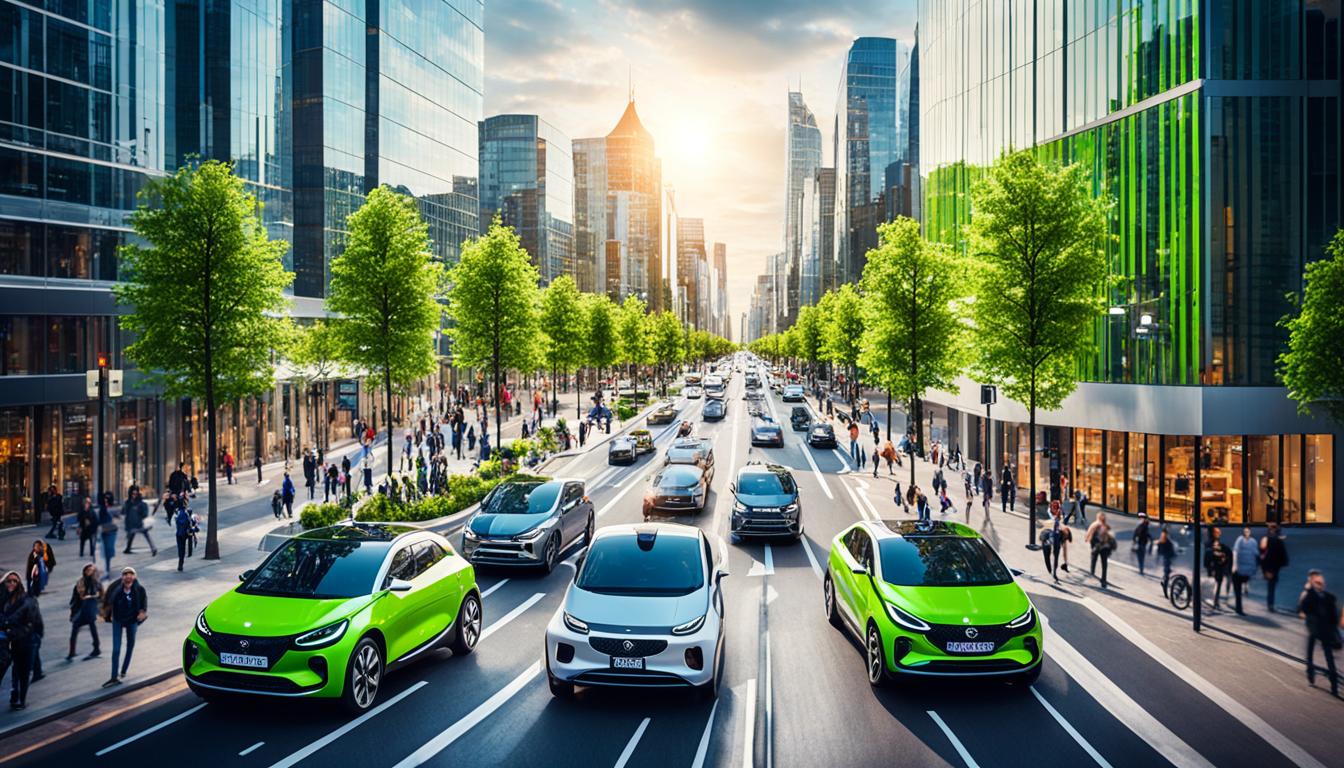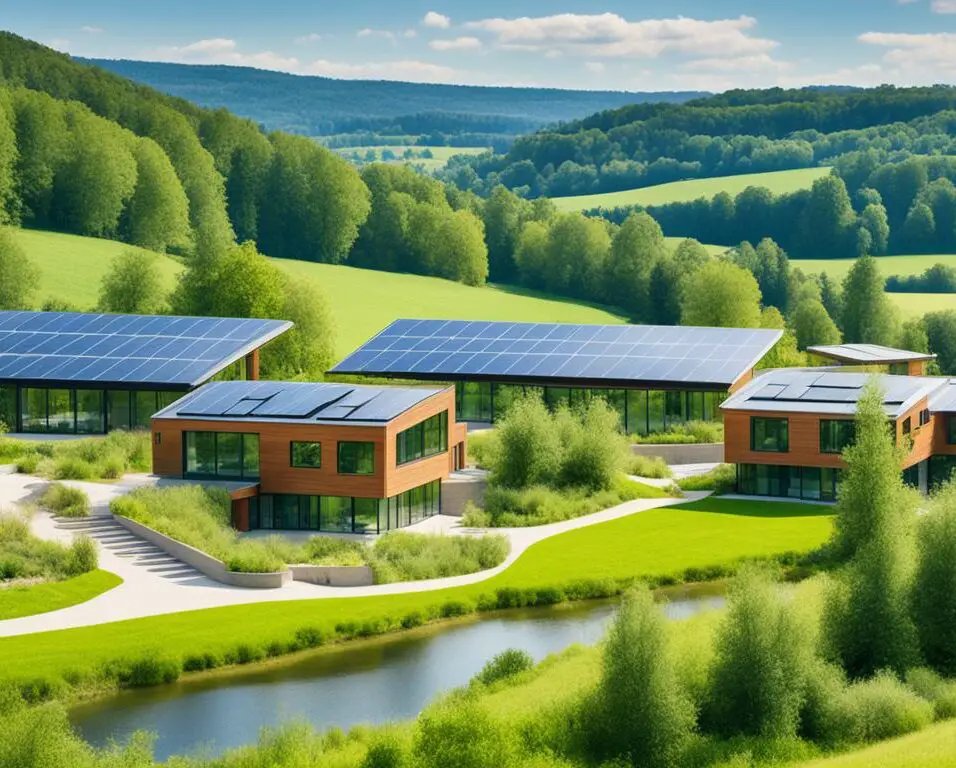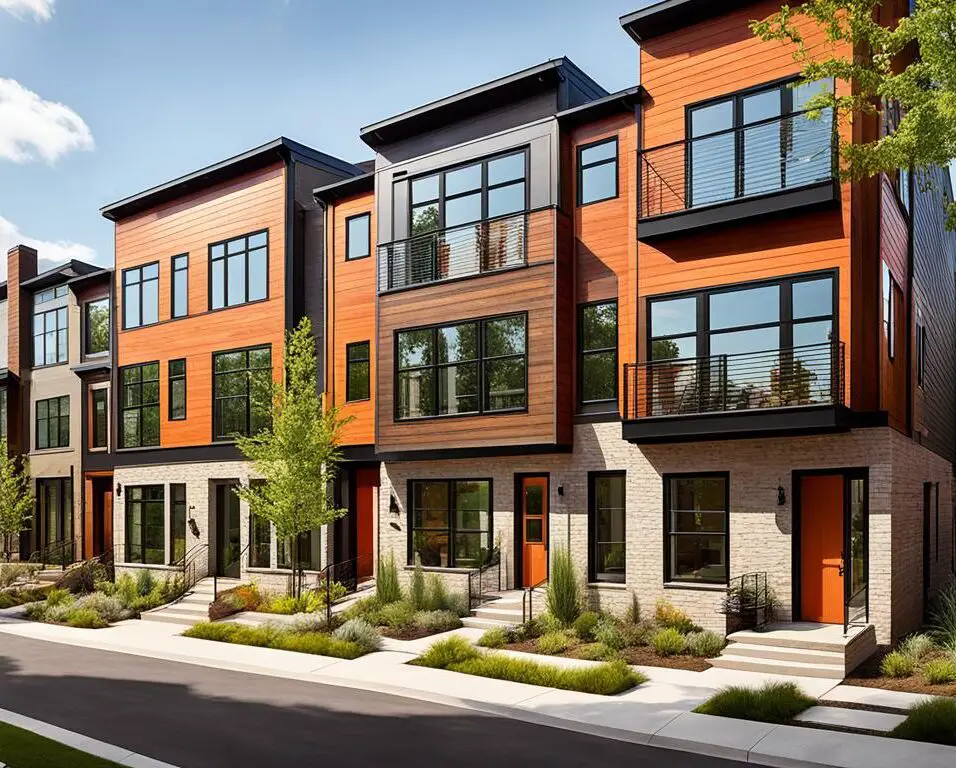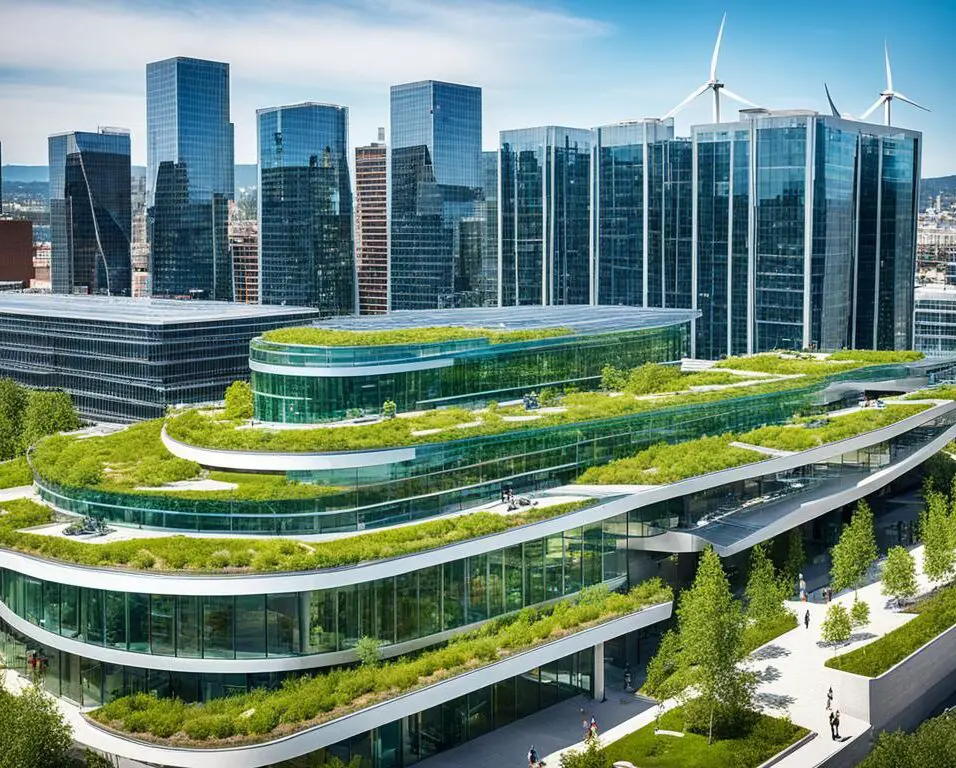Smart City Development: The Future of Urban Living
Welcome to the exciting world of smart city development, where technology and sustainability converge to shape the future of urban living. As cities around the world grapple with the challenges of rapid urbanization, resource constraints, and environmental sustainability, smart city initiatives offer a glimmer of hope and a path forward. With the potential to revolutionize the way we live, work, and interact with our surroundings, smart cities are set to transform our urban landscapes in profound ways.
Smart city development harnesses the power of advanced technologies and data-driven solutions to create efficient, sustainable, and connected urban ecosystems. By integrating cutting-edge technologies such as Internet of Things (IoT), artificial intelligence (AI), and big data analytics, cities can optimize everything from transportation systems and energy usage to waste management and public safety. The result is a well-functioning city that enhances the quality of life for its residents while minimizing its environmental impact.
Key Takeaways
- Smart city development revolutionizes urban living through the integration of advanced technologies and data-driven solutions.
- Benefits of smart city initiatives include improved efficiency in transportation, energy management, and waste management.
- Successful examples of smart cities include Songdo in South Korea, Barcelona in Spain, and Singapore.
- Smart city development must prioritize inclusivity, affordability, and the preservation of cultural heritage.
- The future of urban living lies in continued advancements in smart city development.
The Benefits of Smart City Development
Smart city development offers numerous benefits in various aspects of urban living. One of the key advantages is improved efficiency in areas such as transportation, energy management, and waste management.
Transportation: Smart technologies enable the optimization of traffic flow, reducing congestion and travel times. Intelligent transportation systems can provide real-time traffic updates, recommend alternate routes, and facilitate smart parking solutions, alleviating the stress of commuting and improving overall transportation efficiency.
Energy Management: Smart city solutions are designed to optimize energy consumption and reduce wastage. Intelligent sensors and advanced data analytics enable the monitoring and control of energy usage in buildings, street lighting, and public spaces. This results in significant energy savings and a more sustainable urban environment.
Waste Management: Smart city development enables efficient waste collection and disposal. Integrated waste management systems leverage technologies such as smart bins, GPS tracking, and automated waste collection vehicles to improve waste collection efficiency, reduce landfill waste, and encourage recycling initiatives.
Additionally, smart city solutions can enhance public safety through the use of technologies such as surveillance cameras and sensor networks. These systems provide real-time monitoring and early detection of potential security threats, enabling law enforcement agencies to respond quickly and effectively. The integration of these technologies creates a seamless and connected urban environment that enhances the quality of life for residents.
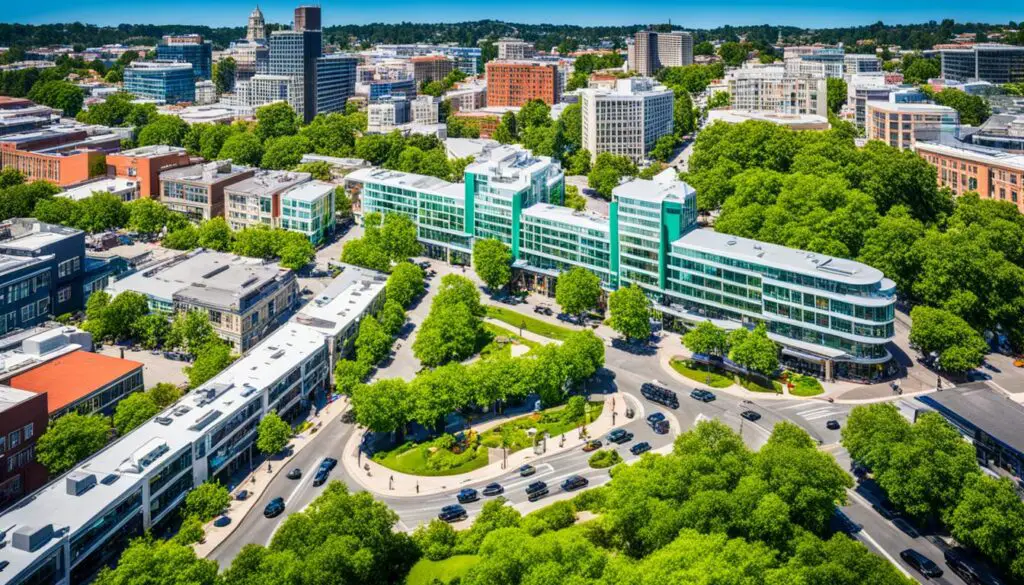
By harnessing the power of smart city development, cities can overcome various urban challenges and create sustainable, livable environments for their residents. The efficient use of resources, enhanced public safety, and improved quality of life make smart city development a compelling solution for urban areas around the world.
Examples of Successful Smart City Initiatives
Smart city initiatives have gained traction worldwide, with cities implementing innovative solutions to tackle urban challenges. The following are examples of highly successful smart city projects:
Songdo, South Korea
Songdo, a city located in South Korea, has gained recognition for its advanced infrastructure and sustainable design. It serves as a model for successful smart city development. Through the integration of smart technologies, Songdo has enhanced efficiency in areas such as transportation, energy management, and waste management. The city’s sustainable design incorporates features such as rooftop gardens and efficient water management systems, promoting environmental conservation.
Barcelona, Spain
Barcelona has emerged as a leading smart city with its focus on citizen engagement and digital connectivity. The city has implemented various initiatives to improve urban living, such as the use of smart sensors to monitor and manage energy consumption. Barcelona’s smart city projects also prioritize citizen participation, encouraging residents to actively contribute to decision-making processes through digital platforms. This emphasis on engagement has fostered a sense of community ownership and collaboration.
Singapore
Singapore is renowned for its efficient transportation system, smart buildings, and sustainability initiatives, making it another notable example of successful smart city development. The city-state has leveraged technology to optimize traffic flow, enhance public safety, and improve energy efficiency. Singapore’s commitment to sustainability is evident in the integration of green spaces and eco-friendly features into urban planning. Additionally, the city’s focus on data-driven decision-making has enabled efficient resource allocation for the benefit of its inhabitants.
These examples of successful smart city initiatives serve as inspiration for other cities seeking to harness the benefits of smart city development. By embracing technological advancements and prioritizing sustainability, cities can pave the way for a more efficient and livable urban future.
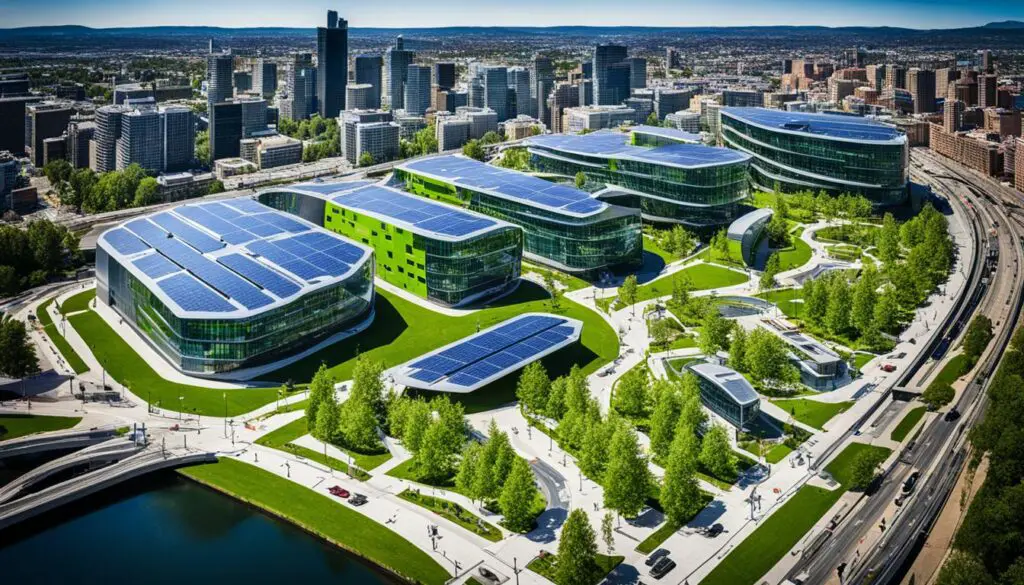
Conclusion
Smart city development is revolutionizing urban living by offering a vision of a more sustainable and efficient future. Through the integration of advanced technologies and innovative solutions, cities are able to tackle the challenges brought about by rapid urbanization, resource constraints, and environmental sustainability.
However, it is crucial for smart city initiatives to prioritize inclusivity, affordability, and the preservation of cultural heritage. By considering the social and environmental impact of technological advancements, smart city development can truly enhance the well-being and quality of life for all residents.
The future of urban living lies in the continued advancement of smart city development. As cities around the world embrace this transformative approach, they pave the way for a more connected and optimized urban landscape. With the ongoing deployment of smart technologies and the collaboration between governments, businesses, and citizens, the potential for long-term positive change in our cities is immense.



